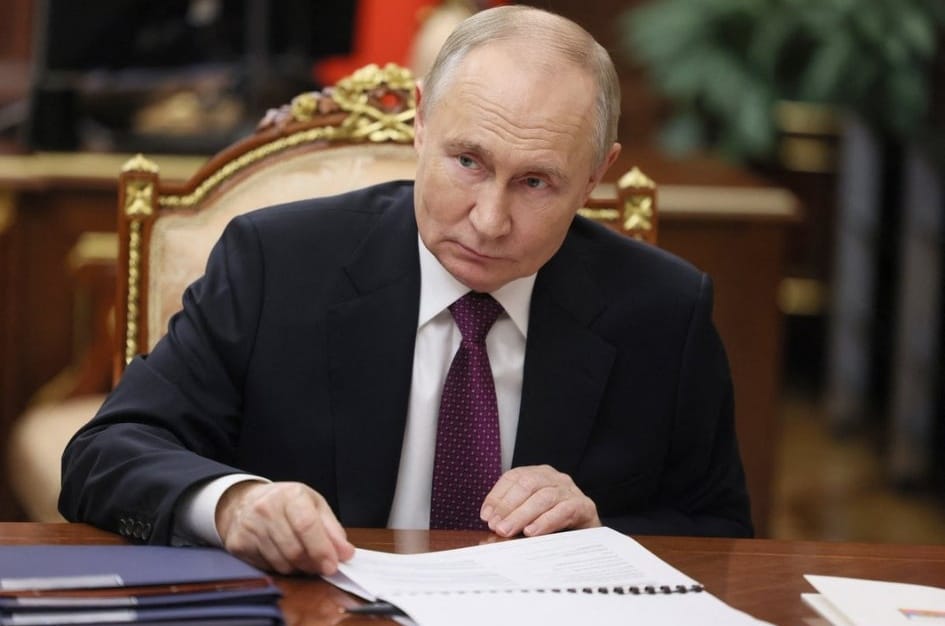In a sharp escalation of the ongoing conflict, Russian President Vladimir Putin announced that Russia successfully tested a new intermediate-range missile during a strike on Ukraine. The strike, carried out on Thursday, was framed as retaliation for recent Ukrainian missile attacks on Russian territory, allegedly using US and British-supplied weaponry.

Putin addressed the nation via a televised broadcast, warning that Moscow might extend such missile strikes to countries aiding Ukraine militarily. However, he assured that advance warnings would be given to allow civilian evacuations. The Russian leader claimed that US air defense systems would be ineffective against these missiles, signaling a bold stance amidst heightened global tensions.
Missile Type Disputed Amid Rising Tensions
Ukraine reported that the attack involved an intercontinental ballistic missile (ICBM) targeting the city of Dnipro, though US intelligence suggested it was an intermediate-range ballistic missile instead. Ukrainian President Volodymyr Zelenskyy insisted the missile’s speed and trajectory were consistent with ICBM characteristics, but no definitive evidence was presented. The Kremlin declined to comment on the nature of the weapon used.
The strike injured two civilians and caused damage to industrial and civilian facilities in Dnipro, including a rehabilitation center for disabled individuals. Ukrainian military sources claimed to have intercepted six of the nine missiles launched in the attack, which reportedly originated from Russia’s Astrakhan region near the Caspian Sea.
Global Reactions and Strategic Implications
The use of long-range or intercontinental missiles, even with conventional warheads, raises concerns about escalating the conflict to a nuclear dimension. Western analysts view such actions as a warning to Ukraine’s allies, particularly in the wake of the US loosening restrictions on Kyiv’s use of American-made longer-range missiles.
UK officials expressed alarm over the reports. Prime Minister Keir Starmer’s spokesperson labeled the situation as “deeply concerning,” while Defence Secretary John Healey cited unconfirmed reports of Russia testing a ballistic missile designed for months. The US and NATO have condemned Moscow’s increasing reliance on provocative military doctrines, including the potential for a nuclear response to conventional threats.
Broader War Developments
In addition to the missile strike in Dnipro, Russia launched attacks on the Ukrainian city of Kryvyi Rih, Zelenskyy’s hometown. At least 26 people were injured, and significant damage was inflicted on residential buildings and public infrastructure. Meanwhile, Russia’s Defense Ministry claimed its air defense systems intercepted multiple Ukrainian-launched British-made Storm Shadow missiles, HIMARS rockets, and drones.
The conflict has entered a critical phase, with Russia’s military advancing in the Donetsk region and Ukraine employing Western-supplied missiles in counterattacks. Experts suggest the updated weapons systems may increase pressure on Russian forces but are unlikely to decisively alter the war’s trajectory.
Strategic Shifts in the Global Arena
Putin’s new nuclear doctrine, signed this week, broadens the scope for potential use of nuclear weapons in response to conventional threats from nations supported by nuclear powers. Western nations have denounced the move as reckless, accusing Moscow of weaponizing nuclear rhetoric to intimidate Ukraine and its allies.
Amid this backdrop, reports of North Korean troops aiding Russian forces and continued missile strikes on Ukrainian cities highlight the widening international dimensions of the conflict. With both sides intensifying their military efforts, analysts warn of the growing risk of miscalculation that could draw NATO and Russia into direct confrontation.





